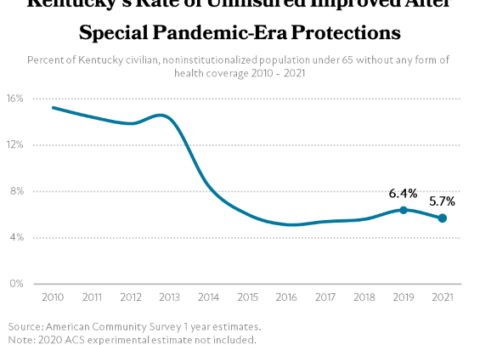Click here to download a pdf of the full report:
New Report: Kentucky Public Employees Are Undercompensated Compared to Private Sector Counterparts
Further Cuts to Pension or Other Benefits Would Widen Gap
While a state task force considers further cuts to public employee pension benefits, a new report shows that Kentucky public workers are already undercompensated compared to their private sector counterparts. Public sector workers receive 12.8 percent less total compensation on an annual basis and 9.2 percent less on an hourly basis.
The report is produced by the Kentucky Center for Economic Policy (KCEP) and authored by Dr. Jeffrey H. Keefe, an associate professor of labor and employment relations at the School of Management and Labor Relations, Rutgers University.
“The state pension system for public employees has been poorly funded by the Kentucky legislature, and a task force is now considering further cuts–or even elimination of the defined benefit pension system–on top of cuts made in 2008,” said Jason Bailey, KCEP director. “But before there are more cuts, and before accepting the claims that public employees have overly-generous benefits, we should look at the facts about public sector compensation.”
The report makes an apples-to-apples comparison between the compensation of public sector and private sector employees in Kentucky. It compares total compensation–including both wages and benefits–and controls for the differences between public and private sector workforces–including the higher levels of education in the public sector. 51 percent of full-time Kentucky public sector workers hold at least a four-year college degree compared to 22 percent of full-time private sector workers.
The report notes that while public sector workers receive a greater share of their overall compensation in the form of retirement and health benefits, it is invalid to simply compare public and private sector benefits and claim that public workers are overpaid. Public sector employees in Kentucky have much lower wages than comparable workers in the private sector, making their overall compensation somewhat lower.
“Most public employees haven’t been receiving raises in recent years, and state workers have seen their health and retirement benefits cut,” said Bailey. “While the recession impacts everyone, the public pension system’s problems have been created primarily by poor legislative decisions. It’s unfair to put all of the burden of that problem on the backs of the workers. Deep cuts hurt those families, our local economies and our ability as a state to attract the qualified workforce we need to carry out critical public services.”
###
The Kentucky Center for Economic Policy is a non-profit, non-partisan initiative that conducts research, analysis and education on important policy issues facing the Commonwealth. Launched in 2011, the Center is a project of the Mountain Association for Community Economic Development (MACED).

